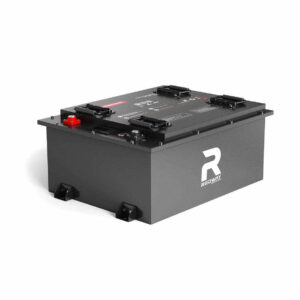What Should You Know About the 2008 Toyota Camry Hybrid Battery?
The 2008 Toyota Camry Hybrid battery is a nickel-metal hydride (NiMH) pack powering the vehicle’s electric motor. It typically lasts 8-12 years or 100,000-150,000 miles. Replacement costs range from $2,000 to $4,500, including parts and labor. Regular maintenance, like avoiding extreme temperatures and ensuring proper charging, can extend its lifespan. Symptoms of failure include reduced fuel efficiency and dashboard warnings.
What Battery Is Used in Telecom Towers?
How Long Does a 2008 Toyota Camry Hybrid Battery Last?
The 2008 Camry Hybrid battery generally lasts 8-12 years or 100,000-150,000 miles. Factors like driving habits, climate, and maintenance influence longevity. For example, frequent short trips in extreme heat may degrade the battery faster. Toyota’s original warranty covered these batteries for 8 years/100,000 miles, but most have now expired, making aftermarket or refurbished replacements common.

What Are the Symptoms of a Failing Hybrid Battery?
Common signs include decreased fuel economy, sudden drops in charge level, engine overheating, illuminated warning lights (e.g., “Check Hybrid System”), and reduced acceleration power. The vehicle may also switch to gas-only mode unexpectedly. One Camry owner reported a 30% MPG drop before their battery failed, emphasizing the need for prompt diagnostics.
How Much Does a 2008 Camry Hybrid Battery Replacement Cost?
Replacement costs range from $2,000 for refurbished batteries to $4,500+ for new OEM packs. Labor adds $500-$1,000. Aftermarket options like Green Bean Battery offer installed replacements from $1,500 with warranties. For example, a Florida dealership charged $3,800 for a factory battery replacement in 2022, while independent shops often undercut this by 20-30%.
Can You Repair a 2008 Camry Hybrid Battery Instead of Replacing It?
Yes, some shops offer reconditioning for $800-$1,500 by replacing individual faulty cells. This works if only 1-2 cells (of 240) are dead. A Utah repair center reported 60% success rate in partial repairs, extending battery life 2-3 years. However, full replacements are recommended if voltage variance between cells exceeds 0.3V.
Where Should You Replace a 2008 Camry Hybrid Battery?
Options include Toyota dealerships (OEM parts, highest cost), independent hybrid specialists (20-40% cheaper), and DIY kits for experienced mechanics. National chains like Firestone now offer hybrid battery services. Always verify warranty coverage—remanufactured batteries often include 3-year/50,000-mile warranties versus 1-year for many refurbished units.
What Maintenance Extends a Hybrid Battery’s Lifespan?
Key practices:
- Drive the vehicle weekly to maintain charge
- Avoid parking in temperatures below -22°F/-30°C or above 122°F/50°C
- Use the vehicle’s “Ready” mode for 10 minutes monthly if inactive
- Keep the battery cooling vents clean
- Address engine issues promptly to reduce electrical strain
Consistent maintenance can add 2-4 years to your battery’s life. For instance, cleaning cooling vents every 15,000 miles prevents debris buildup that causes overheating—a leading cause of premature failure. Hybrid specialists recommend using a soft brush and compressed air for this task. Drivers in urban areas should prioritize weekly 20+ minute drives to maintain optimal charge cycles. The “Ready” mode trickle-charges the battery without engine wear—ideal for vehicles stored seasonally. Consider installing a battery maintainer if the car sits unused for extended periods.
| Maintenance Task | Frequency | Impact |
|---|---|---|
| Cooling vent inspection | Every oil change | Prevents 40% of heat-related failures |
| Extended drive cycles | Weekly | Balances cell voltage |
| Battery state-of-health test | Annually | Identifies early degradation |
How Does Temperature Affect the Hybrid Battery?
Extreme heat accelerates chemical degradation, while cold reduces efficiency. A 2021 study showed Camry Hybrid batteries in Arizona averaged 7.5-year lifespan versus 11 years in mild climates. Toyota’s battery management system (BMS) mitigates temperature effects, but owners in extreme climates should park in garages and use sunshades.
Thermal management is critical for NiMH batteries. Prolonged exposure to 95°F+ temperatures can increase internal resistance by 15%, reducing energy storage capacity. In freezing conditions, the BMS draws more power to warm the battery, accelerating wear. A 2023 analysis revealed that using insulated battery blankets in sub-zero climates improved winter efficiency by 18%. Parking in shaded areas during summer months helps maintain optimal operating temperatures between 68°F-86°F. Consider these climate-specific strategies:
| Climate Type | Recommended Action | Expected Lifespan Increase |
|---|---|---|
| Desert (100°F+) | Ceramic window tint + garage parking | 22% |
| Arctic (-20°F) | Engine block heater + battery blanket | 19% |
Are Aftermarket Batteries Compatible With the 2008 Camry Hybrid?
Yes, companies like Dorman, ACDelco, and NexPower make compatible NiMH packs. Ensure the battery meets Toyota’s specifications: 244.8V nominal voltage, 6.5Ah capacity, and matching dimensions (28.3″ x 13.5″ x 11.2″). Some newer lithium-ion conversions exist but require ECU reprogramming and aren’t street-legal in all states.
Expert Views
“Camry Hybrid batteries fail gradually, not suddenly,” says hybrid technician Mark Sullivan. “Monitoring MPG through the car’s computer gives early warnings. We’re seeing 2008 models benefit from upgraded cooling fans in replacement batteries—this adds $200 but improves longevity 15-20% in hot climates.”
FAQs
- Can I jump-start a Camry Hybrid with a dead battery?
- Yes, but only the 12V auxiliary battery—the high-voltage battery requires professional charging.
- Does the hybrid battery charge while driving?
- Yes, regenerative braking and the gas engine recharge it during operation.
- Are there recalls for 2008 Camry Hybrid batteries?
- No active recalls, but some owners received warranty extensions for specific manufacturing defects.
